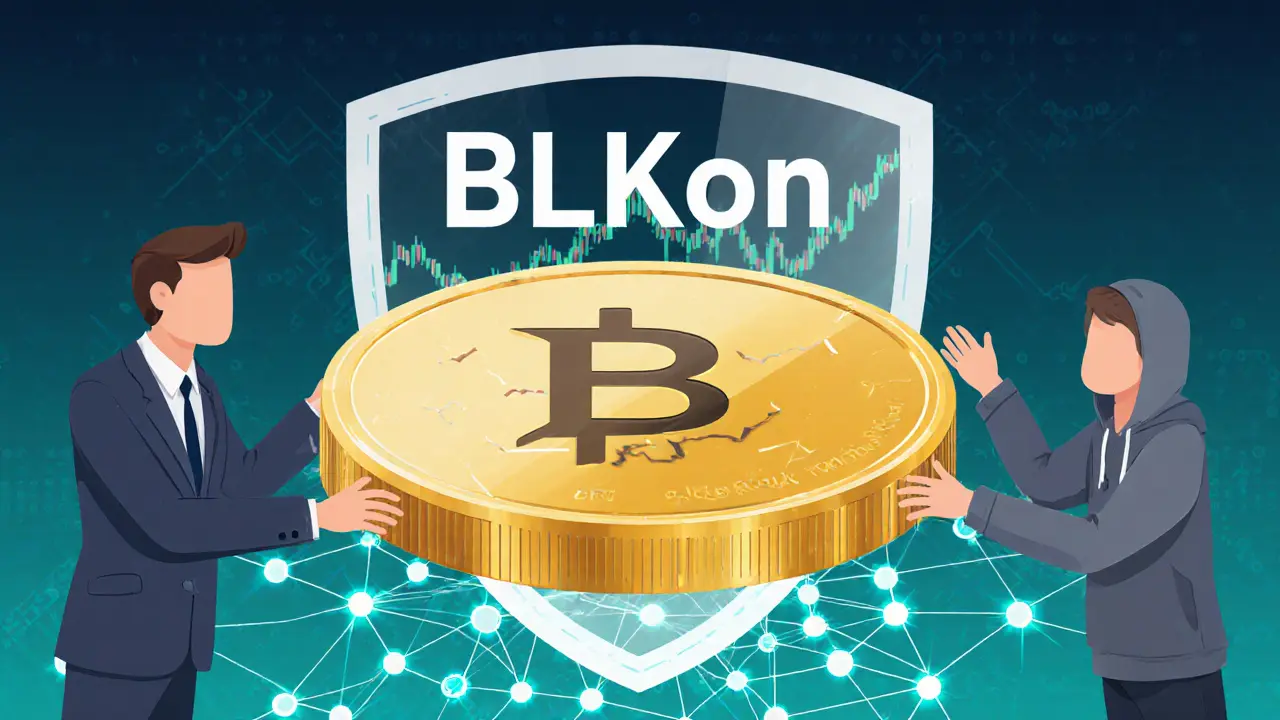BLKon is not a cryptocurrency but a tokenized version of BlackRock stock, created by Ondo Finance. It lets crypto users track BLK's price 24/7, reinvest dividends automatically, and access institutional assets on-chain - but with high risks and limited liquidity.
BlackRock Tokenized Stock: What It Is and Why It Matters
When you think of BlackRock tokenized stock, a digital version of traditional company shares issued on a blockchain and managed by BlackRock, one of the world’s largest asset managers. Also known as digital securities, it lets you own fractions of stocks like Apple or Tesla without going through a traditional broker. This isn’t science fiction—it’s happening right now, and BlackRock is leading the charge.
Tokenized stock isn’t just about moving shares online. It’s about making investing faster, cheaper, and more open. With blockchain stocks, ownership records stored on a distributed ledger that can’t be altered or deleted, you get instant settlement, 24/7 trading, and lower fees. Unlike traditional stock trading, which takes days to clear, tokenized shares settle in seconds. And because they’re built on blockchain, they’re transparent—anyone can verify ownership without relying on a middleman. BlackRock’s move into this space signals that big finance is no longer just watching the crypto wave—it’s building its own boat.
What makes this different from ETFs or online brokerages? BlackRock ETF, a fund that tracks a basket of stocks and trades like a single share on major exchanges has been around for decades. But tokenized stock is the next step: actual ownership of real assets, digitized and programmable. Imagine owning 0.001 shares of Amazon, and that share can be sent to a friend, used as collateral in a DeFi loan, or traded on a global exchange—all in one transaction. That’s the power of tokenization. And BlackRock isn’t doing this alone. They’ve partnered with firms like Coinbase and State Street to build the infrastructure, ensuring these digital shares are secure, regulated, and ready for mainstream use.
Why should you care? Because this changes who gets access to the markets. Right now, if you’re not in the U.S. or don’t have a brokerage account, buying U.S. stocks is hard. Tokenized stock removes those barriers. It opens up investing to people in emerging markets, gig workers, and anyone with a smartphone. It also means less control by banks and more control for you. This isn’t about replacing Wall Street—it’s about upgrading it.
Underneath all this is a quiet revolution in how we think about ownership. Tokens aren’t just digital representations—they’re smart contracts that can carry rules. A tokenized stock could automatically pay dividends, vote on shareholder proposals, or lock in tax rules based on jurisdiction. BlackRock’s version is still early, but it’s designed to be compliant with U.S. securities law, making it one of the few tokenized assets that’s actually legal and trustworthy.
What you’ll find below are real stories, deep dives, and clear breakdowns of how tokenized stocks work, who’s using them, and what’s next. Some posts cover how BlackRock’s moves compare to other giants like Fidelity or JPMorgan. Others explain how tokenization affects everyday investors. You’ll also see how this ties into broader trends—like the rise of DeFi, the future of ETFs, and the slow death of paper-based finance. There’s no hype here. Just facts, tools, and context you can use to decide if this is something you want to be part of.
